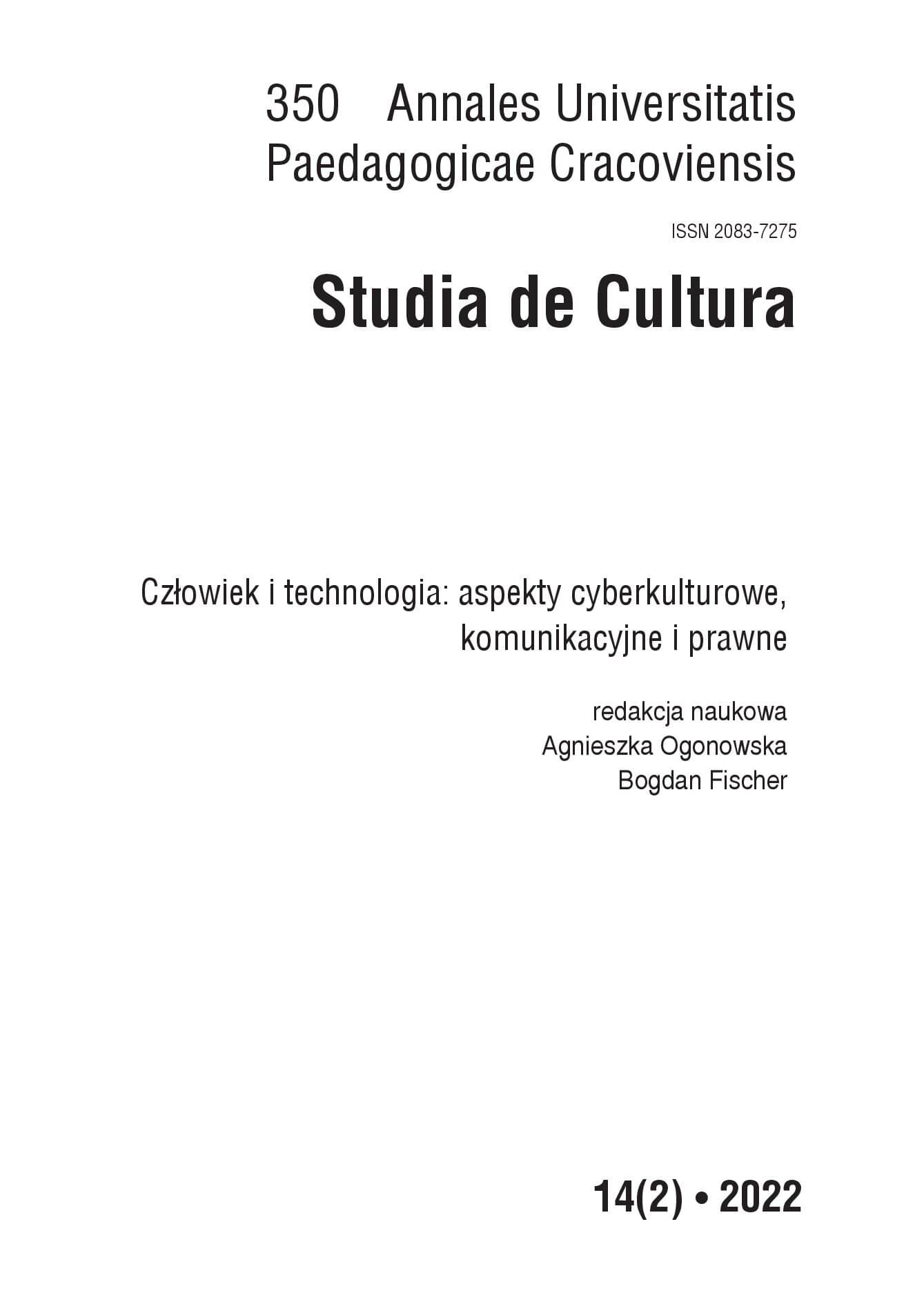Abstrakt
Obecnie obserwujemy tendencje do digitalizowania wszelkiej informacji i twórczości, co z jednej strony wpływa na ich globalną dostępność, ale z drugiej strony rodzi problemy związane z ochroną własności intelektualnej i praw twórców. Udostępnianie utworów za pośrednictwem internetu jest niezwykle proste, niegenerujące kosztów i anonimowe. Rozwój internetu i znaczenia sieci wpłynął na powszechne, nielegalne udostępnianie dzieł za jego pośrednictwem. Działania te odbywały się przy bierności i braku skuteczności prawodawcy, czego efektem jest „kryzys prawa autorskiego” - prawo autorskie przestało odpowiadać wyzwaniom społeczeństwa informacyjnego.
Jedną z najbardziej spornych kwestii w doktrynie prawa autorskiego jest kwestia dopuszczalności instytucji wyczerpania praw autorskich do wszystkich niematerialnych kopii utworów, w tym e-booków. Celem badawczym wystąpienia jest odpowiedź na następujące pytanie badawcze: czy odsprzedaż e-booka stanowi naruszenie praw autorskich? Aby odpowiedzieć na to pytanie, należy przeanalizować różnice pomiędzy cyfrową a tradycyjną wersją publikacji w kontekście wpływu tych różnic na rynek wydawniczy. Odpowiedź na to pytanie ma kluczowe znaczenie w określeniu przyszłości dostępu do dzieł kultury. Podstawą rozważań jest wyrok TSUE C-263/18. Metodą badawczą wykorzystaną w pracy jest metoda studium przypadku i monograficzna.
Bibliografia
Czetwertyński Sławomir. 2018. „Instytucjonalne ograniczenia rozwoju dóbr informacyjnych”. Studia i Prace Wydziału Nauk Ekonomicznych i Zarządzania Uniwersytetu Szczecińskiego t. 54, nr 2. 5–20.
Zobacz w Google Scholar
Deja Marek. 2015. „Analiza zjawiska elektronicznego samopublikowania. Model elektronicznego samopublikowania”. Nowa Biblioteka nr 1(16). 7–20.
Zobacz w Google Scholar
Dobrzeniecki Karol. 2008. Lex informatica. Toruń.
Zobacz w Google Scholar
Gleisner Iwona. 2013. „Problem wolności w Internecie”. iNFOTEZY nr 3(1). https://infotezy.ujk.edu.pl/2020/12/03/infotezy-2013-vol-3-nr-1/#tresc. (dostęp: 30.05.2022).
Zobacz w Google Scholar
Gołębiewski Łukasz, Waszczyk Paweł. 2017. Rynek książki w Polsce 2016. Warszawa.
Zobacz w Google Scholar
Grützmacher Malte. 2020. „Was E-Bücher und Computerprogramme gemeinhaben?”. Computer und Recht t. 36, nr 3.
Zobacz w Google Scholar
Gurczyński Jacek. 2013. „Wolny internet, wolna kultura”. Kultura i Wartości nr 2(6). 77–90.
Zobacz w Google Scholar
Huczkowski Marcin 2013. Ochrona autorskich praw osobistych w powszechnym prawie międzynarodowym. Warszawa.
Zobacz w Google Scholar
Janowski Jacek. 2012. Cyberkultura prawa. Współczesne problemy filozofii i informatyki prawa. Warszawa.
Zobacz w Google Scholar
Kurek-Kokocińska Stanisława. 2020. „Kształtowanie kultury e-booków, analiza przekazu internetowego firm funkcjonujących na rynku książki”. Folia Toruniensia nr 20. 141–163.
Zobacz w Google Scholar
Mazei Péter. 2020. „The Doctrine of Exhaustion in Limbo-Critical Remarks on the CJEU’s Tom Kabinet Ruling”. Zeszyty Naukowe Uniwersytetu Jagiellońskiego. Prace z Prawa Własności Intelektualnej nr 2. 130–153.
Zobacz w Google Scholar
Nizianty Mateusz, Piechota Anna. 2016. „E-book – śmierć książki czy jej nowe życie? Historia, technologia, poezja, rynek”. Annales Universitatis Paedagogicae Cracoviensis. Studia de Cultura 8.2. 100–116.
Zobacz w Google Scholar
Pawlikowska Joanna. 2020. „Glosa do wyroku Wielkiej Izby Trybunału Sprawiedliwości Unii Europejskiej z dnia 19 grudnia 2019 r., C-263/18”. Forum Prawnicze nr 5(61). 87–98.
Zobacz w Google Scholar
Podrecki Paweł. 2007. Prawo Internetu. Warszawa.
Zobacz w Google Scholar
Rituzzo Franco. 2020. „The European Court of Justice Rules in Tom Kabinet That the Exhaustion of Rights in Copyright Has Little Place in the Age of Online Digital Formats (Case Comment)”. Computer and Telecommunications Law Review t. 26, nr 4. 108–115.
Zobacz w Google Scholar
Rocha Maria Victoria. 2020. „Decisão Tom Kabinet: um forte retrocesso do esgotamento digital na União Europeia?”. Revista de Direito Intelectual nr 1. 223–244.
Zobacz w Google Scholar
Rożniakowska-Kłosińska Małgorzata, Kłosiński Rafał. 2010. Wirtualny świat e-booków a analogowa rzeczywistość. W: Biblioteka w kryzysie czy kryzys w Bibliotece? IV Konferencja Biblioteki Politechniki Łódzkiej. Materiały Konferencyjne. Łódź.
Zobacz w Google Scholar
Seweryn Anna. 2018. „Książka elektroniczna jako przestrzeń projektowa w grafice komputerowej”. Praktyka i Teoria Informacji Naukowej i Technicznej” t. 26, nr 24. 3–15.
Zobacz w Google Scholar
Sganga Caterina. 2021. Digital Exhaustion after Tom Kabinet. A Non-Exhausted Debate. W: EU Internet Law in the Digital Single Market. Tatiana-Eleni Synodinou (red.). Springer. https://ssrn.com/abstract=3803940. (dostęp: 1.06.2021). 141–176.
Zobacz w Google Scholar
Śmigiel Łukasz. 2020. „Kierunki rozwoju rynku książki tradycyjnej i cyfrowej”. Studia i Perspektywy Medioznawcze t. 2. 141–155.
Zobacz w Google Scholar

Utwór dostępny jest na licencji Creative Commons Uznanie autorstwa – Użycie niekomercyjne 4.0 Międzynarodowe.

